28 Dec. 2021
1st sabbatical
After 9+ years in design-tech, I'm taking a personal sabbatical for 3-6 months to relax, recharge, and build new things.
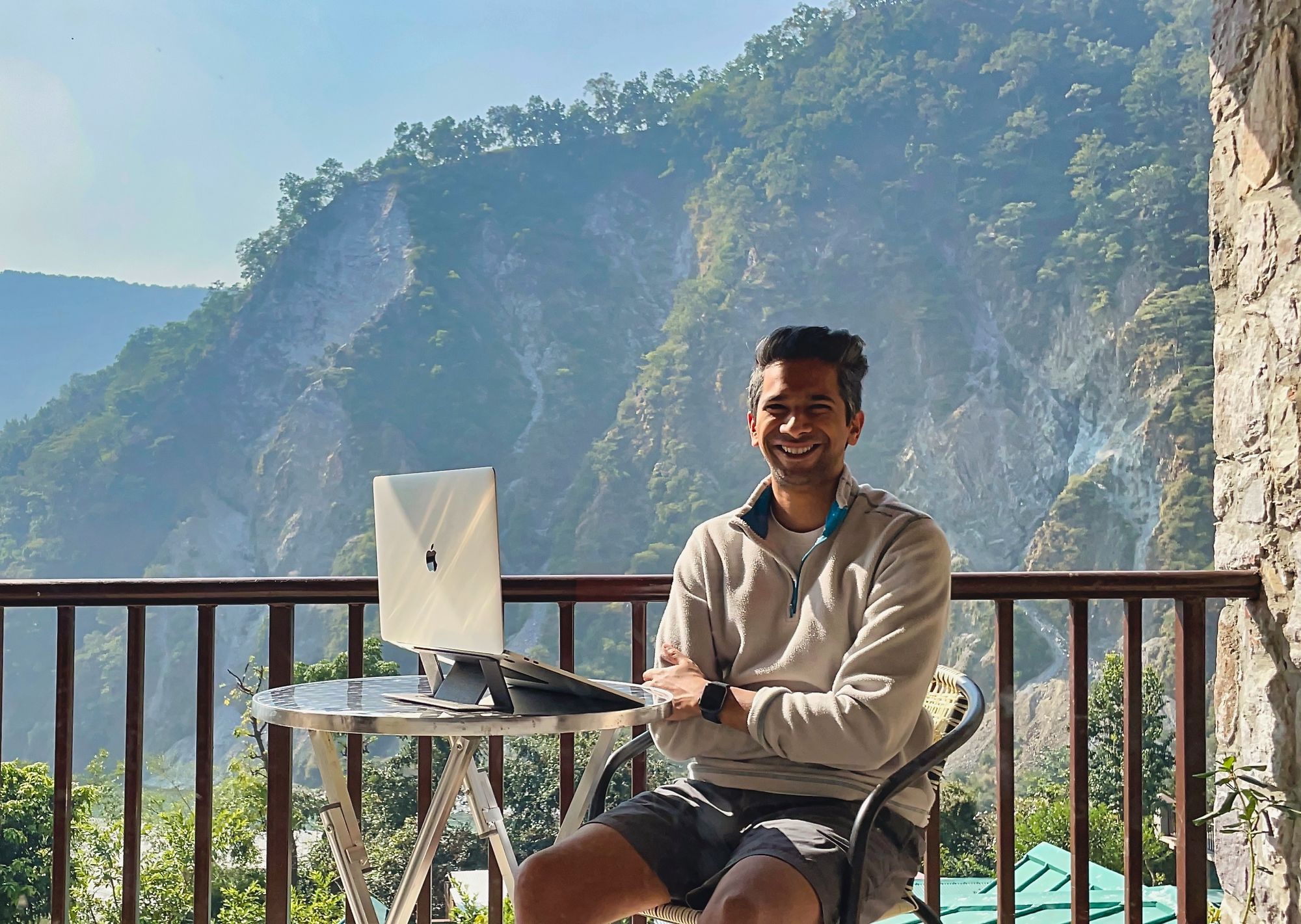
The foundation of becoming a maker:
I am a maker at heart. I love making things.
My mom's a housewife but she has been painting since her college days, so I picked the creative genes from her. My dad was a banker but he's also been writing for decades. I also remember that he'd always show interest in fixing things around the house apart from writing in his free time. He'd rearrange his bookshelf and other common areas frequently.
Looking back, the small things my parents did, influenced me greatly. For example, I like keeping my house & belongings clean and organised. I am more inclined towards doing creative stuff frequently i.e. making things, be it physical or digital.
During my early childhood, following on my mom's footsteps, I started sketching at first. Started with typical mountain & river drawings. Later, drawing cars and gadgets were my interest.

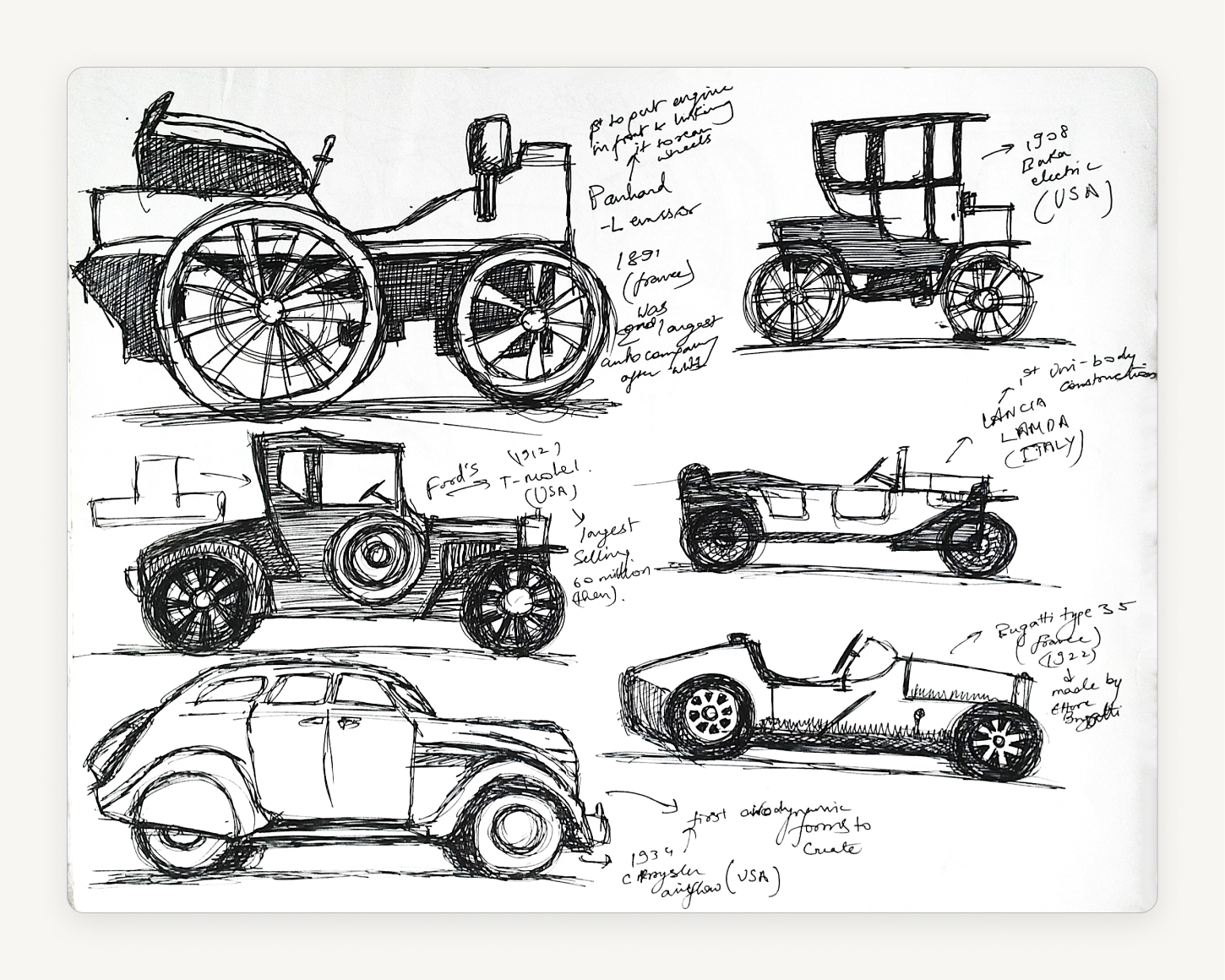
I also used to break a ton of stuff to see how they worked and try to assemble them again. This pulled me towards doing some material DIY stuff - cardboard paper, glue, and scissors were my best friend during my childhood.
When I was in school, among other things, I made a working wolverine claw prototype, inspired by the X-men comic character. During my college days, I made a see-through casing for a broken computer mouse and a prototype of a stool that could also convert as a lamp.
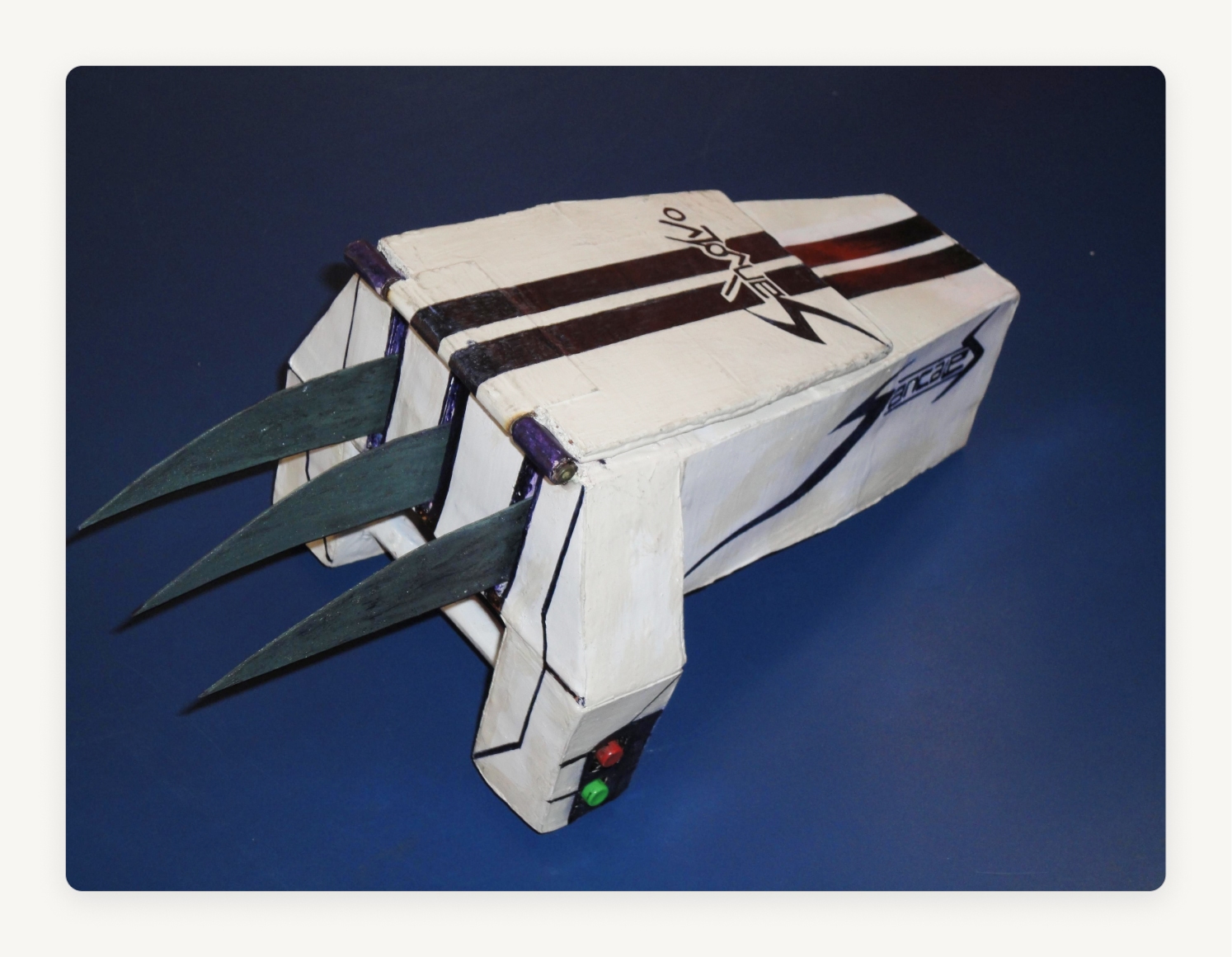
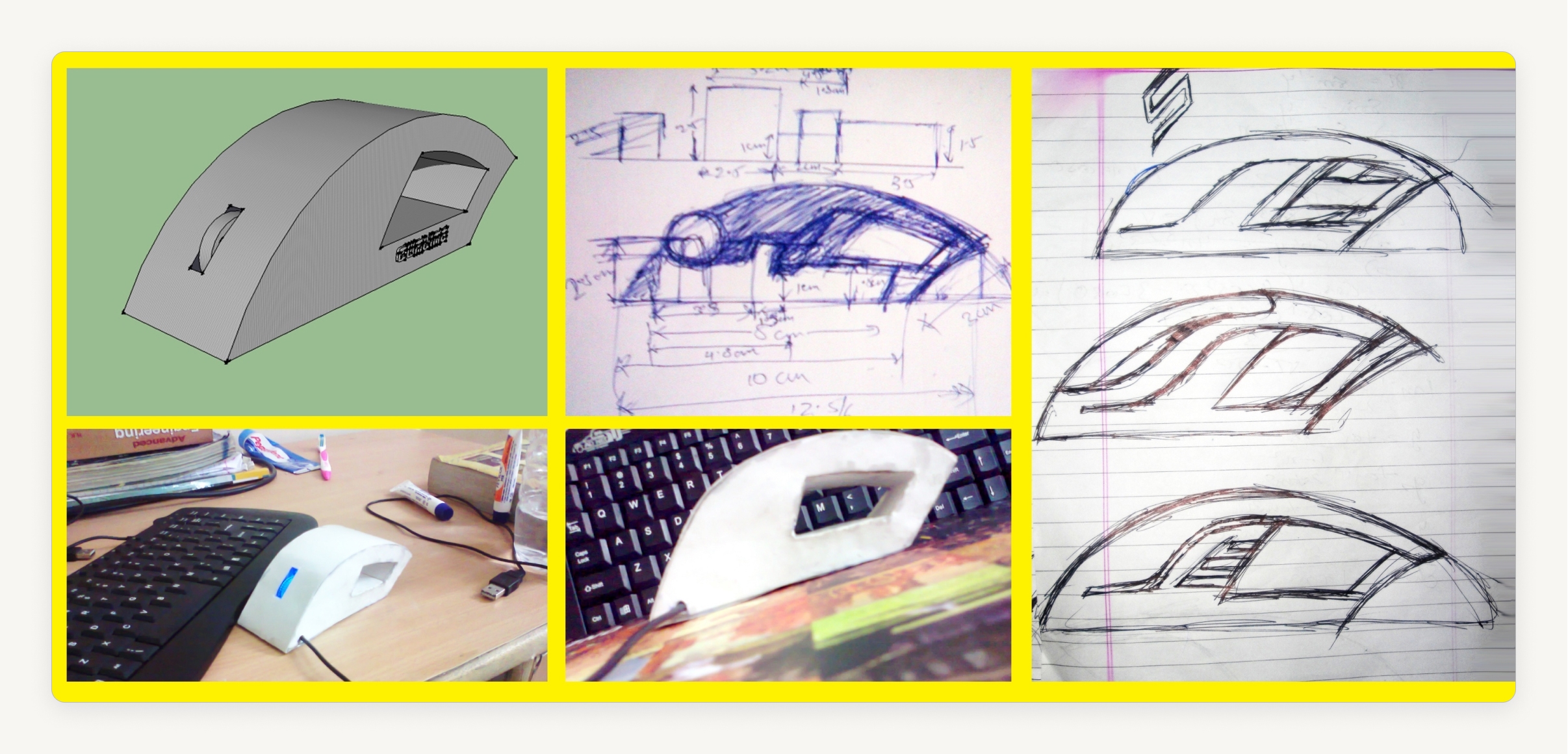
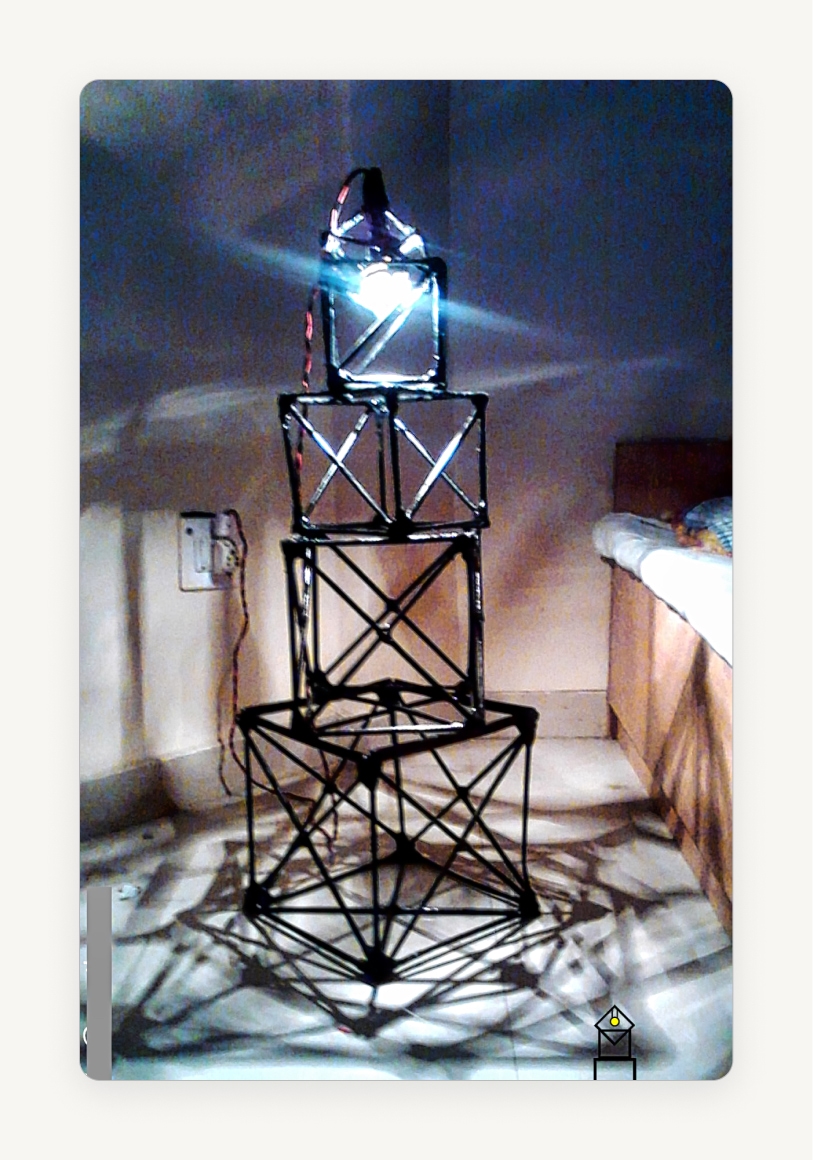
Fulfilling thy creative soul:
My love for drawing things and doing DIY stuff made me more interested in "design" as a discipline. I started exploring concepts in 3D during my college days. This led me to draft a few 3D concepts and I wanted to publish them on my own website as case studies or "marketing landing pages".
But I didn't know how to code. This put me on the road to learn front-end development so that I could build a website to showcase the concepts. I spent a whole semester, skipping classes and learning HTML/CSS and building my own website. Shout out to Roshan, one of my best friends from college in helping me grasp how html & css works.
I launched my first portfolio website in 2012, couldn't be happier.
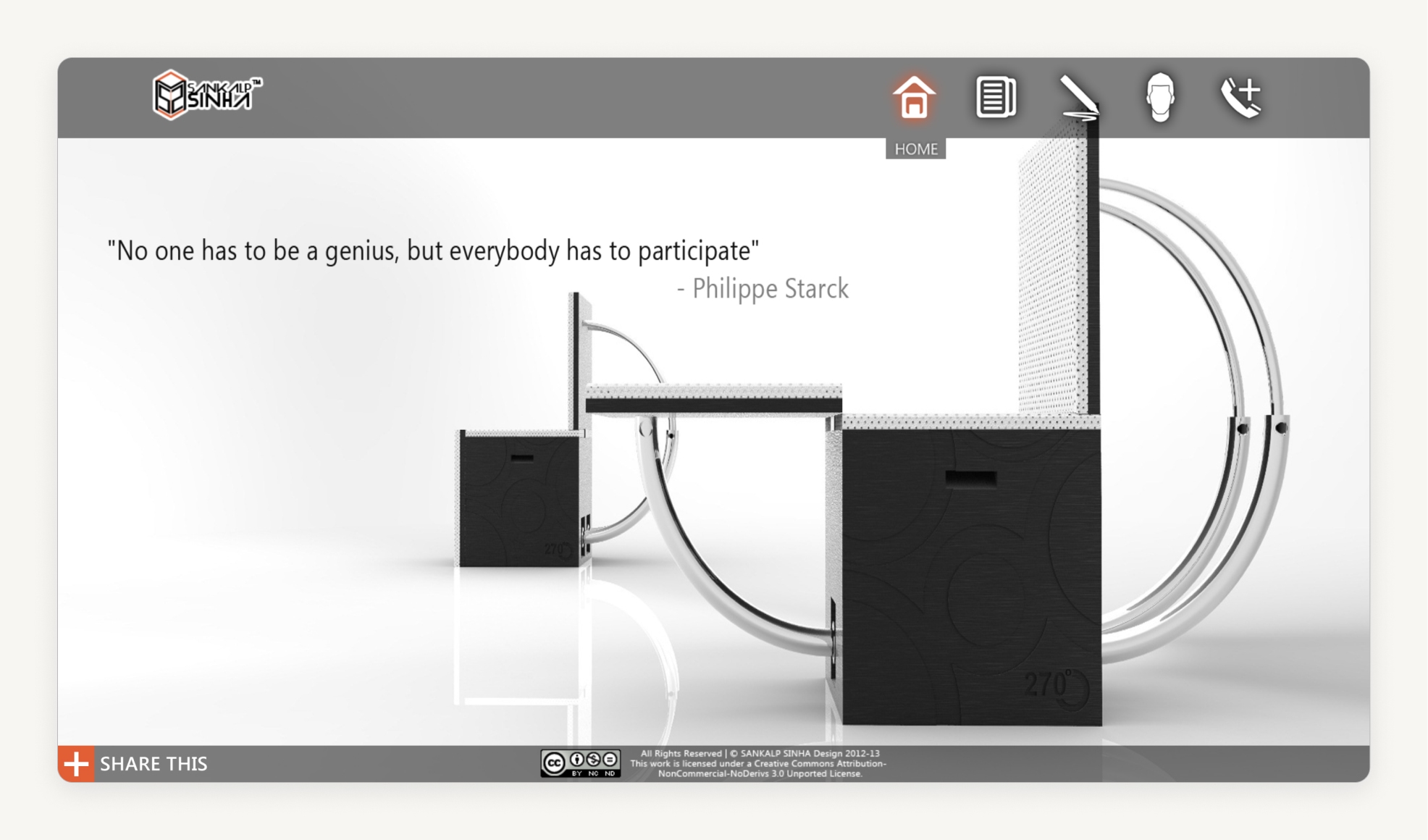
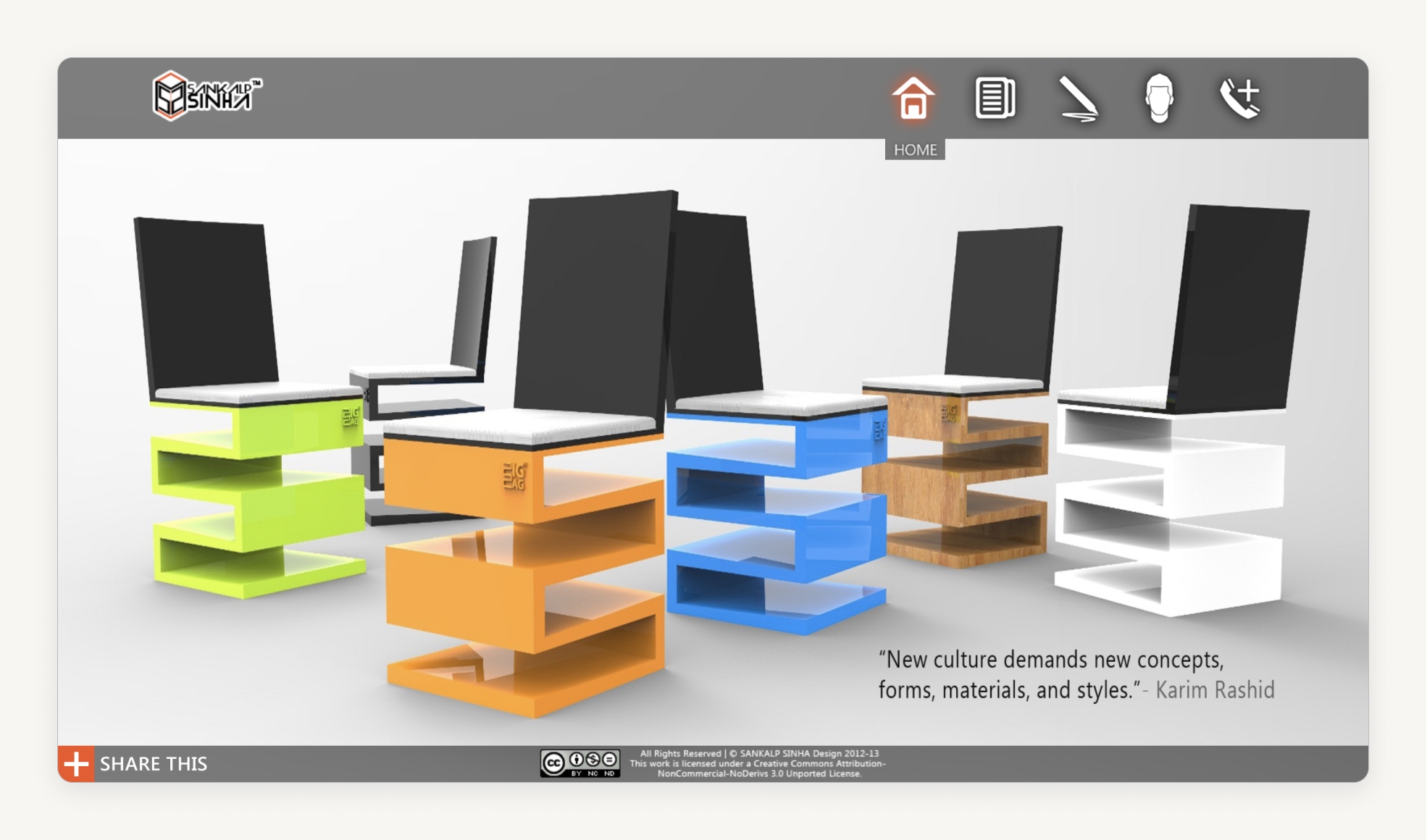
Out of my many 3D concepts I designed, one was an alarm clock design that had the concept of giving you a mild shock in the morning when you press the snooze button, forcing you to wake up. That concept went viral and put me in the limelight with national and international media, like, HuffPost, DiscoveryNews, BBC Radio, etc.
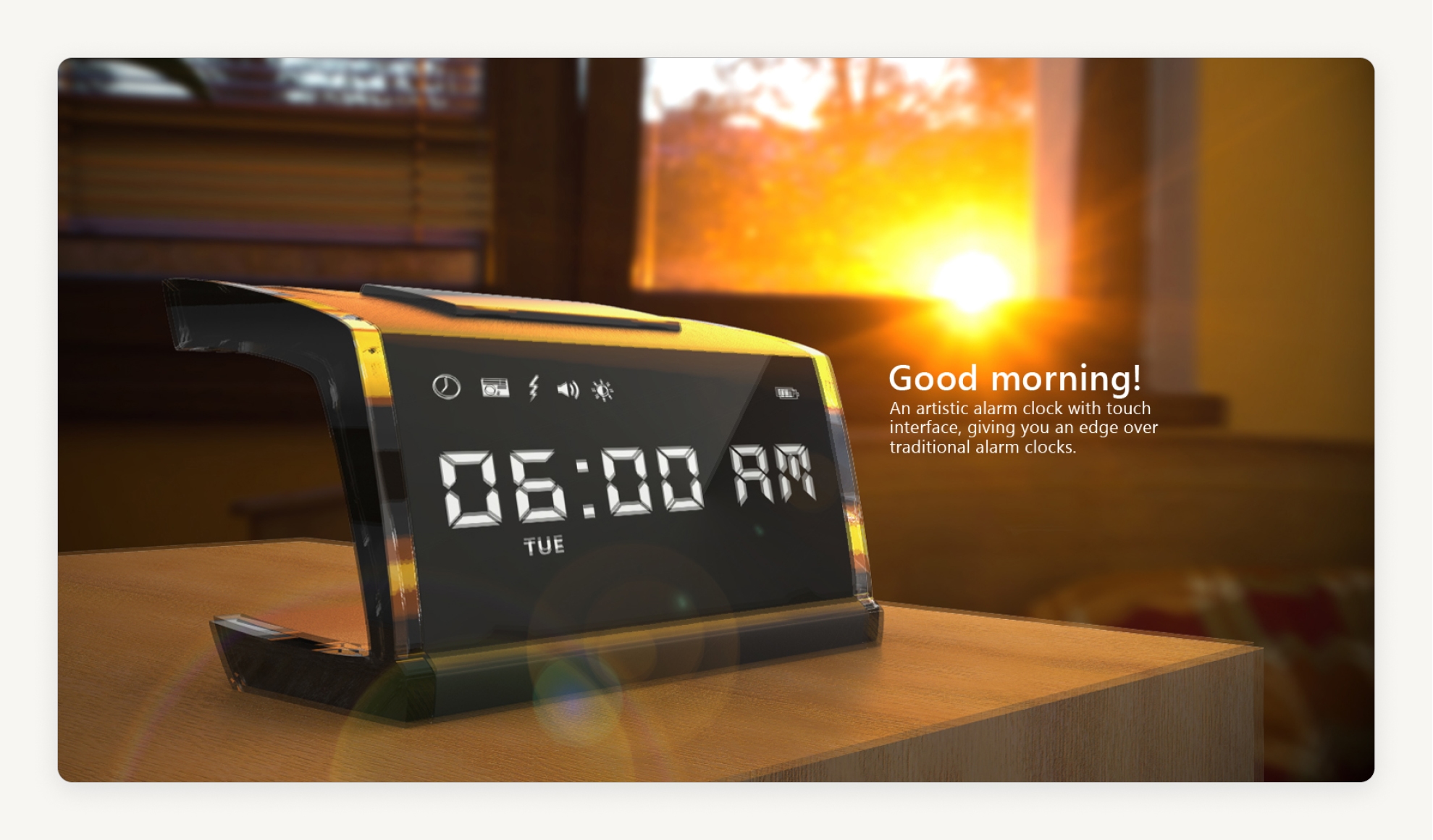
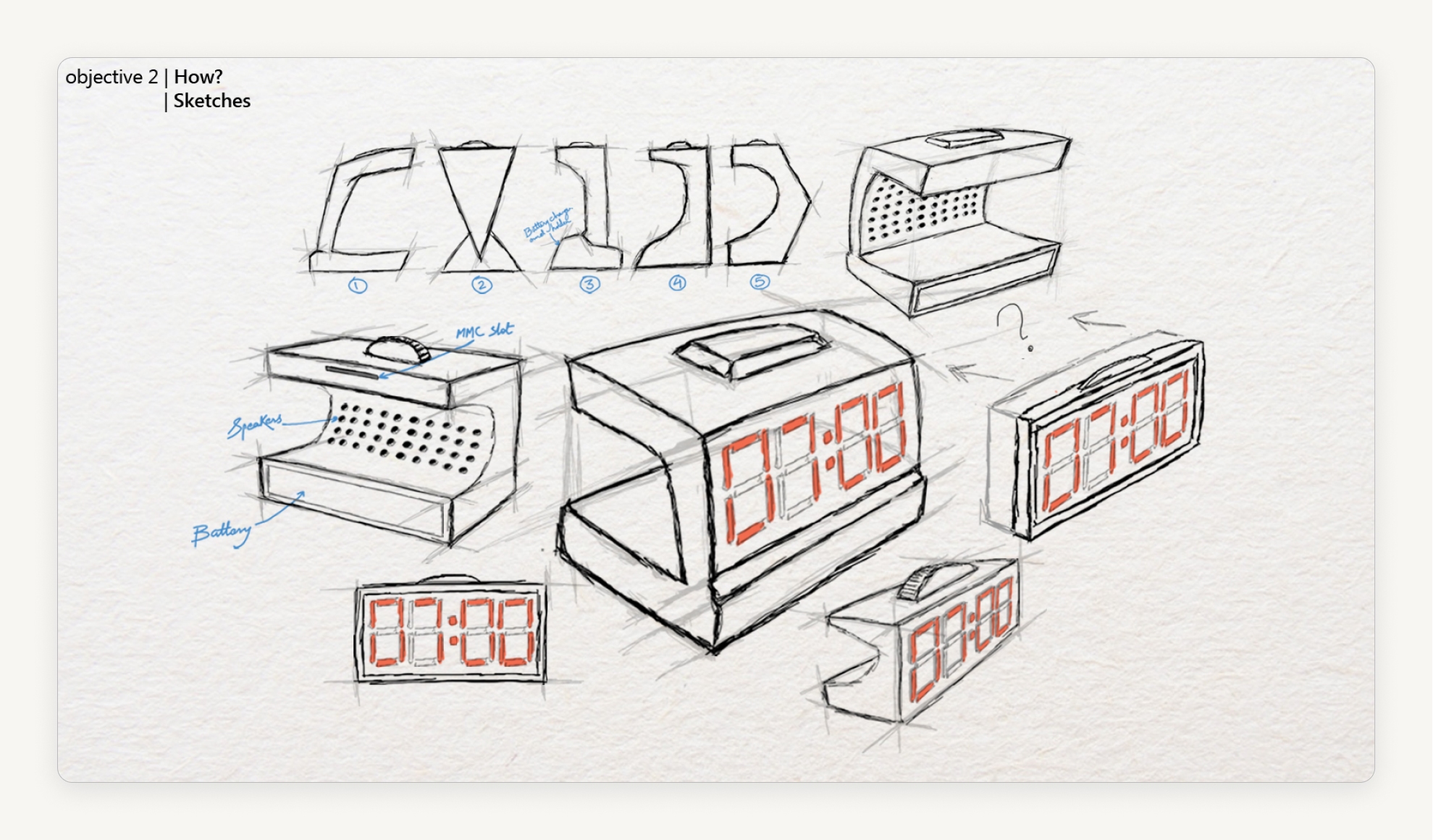
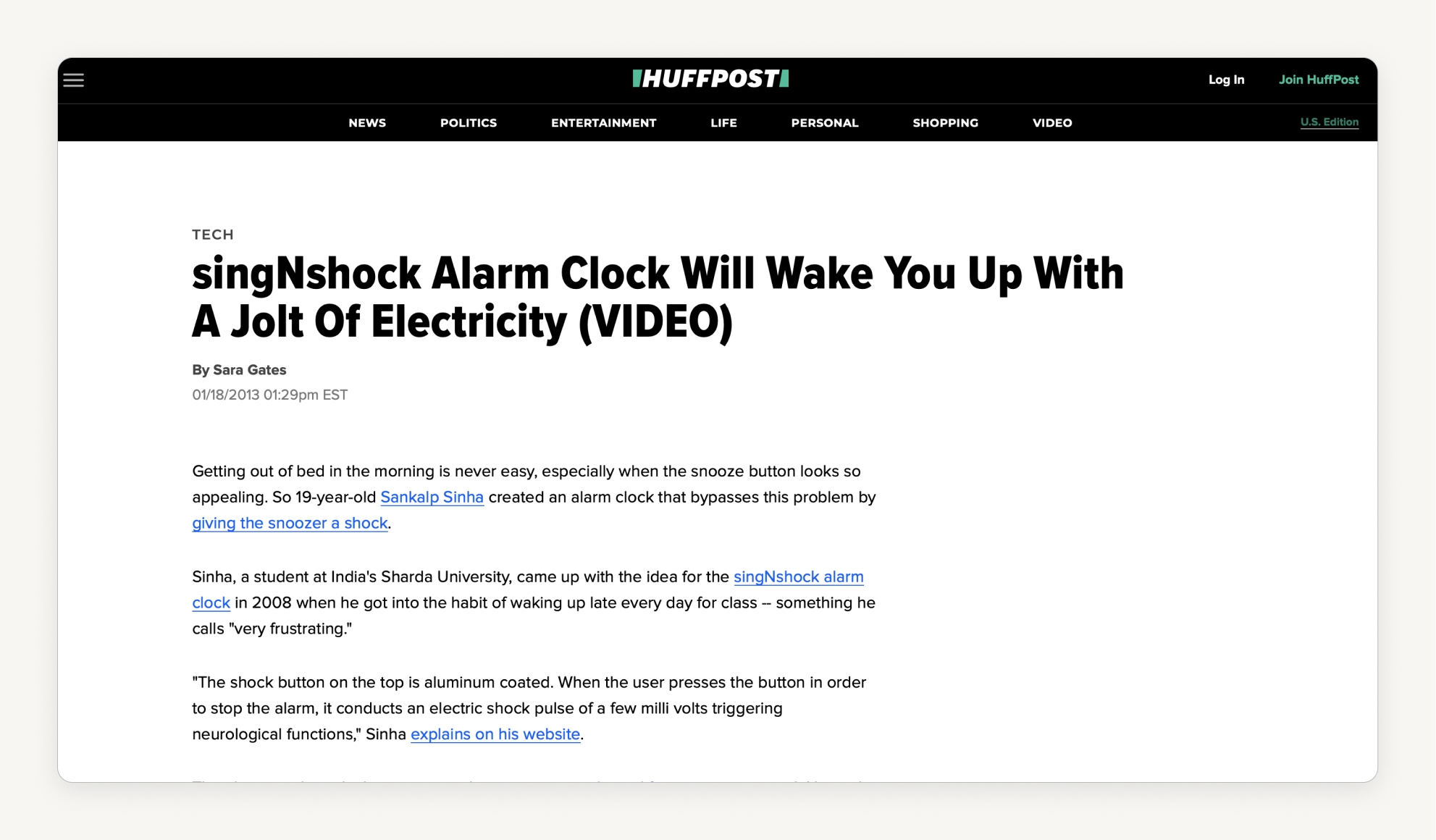
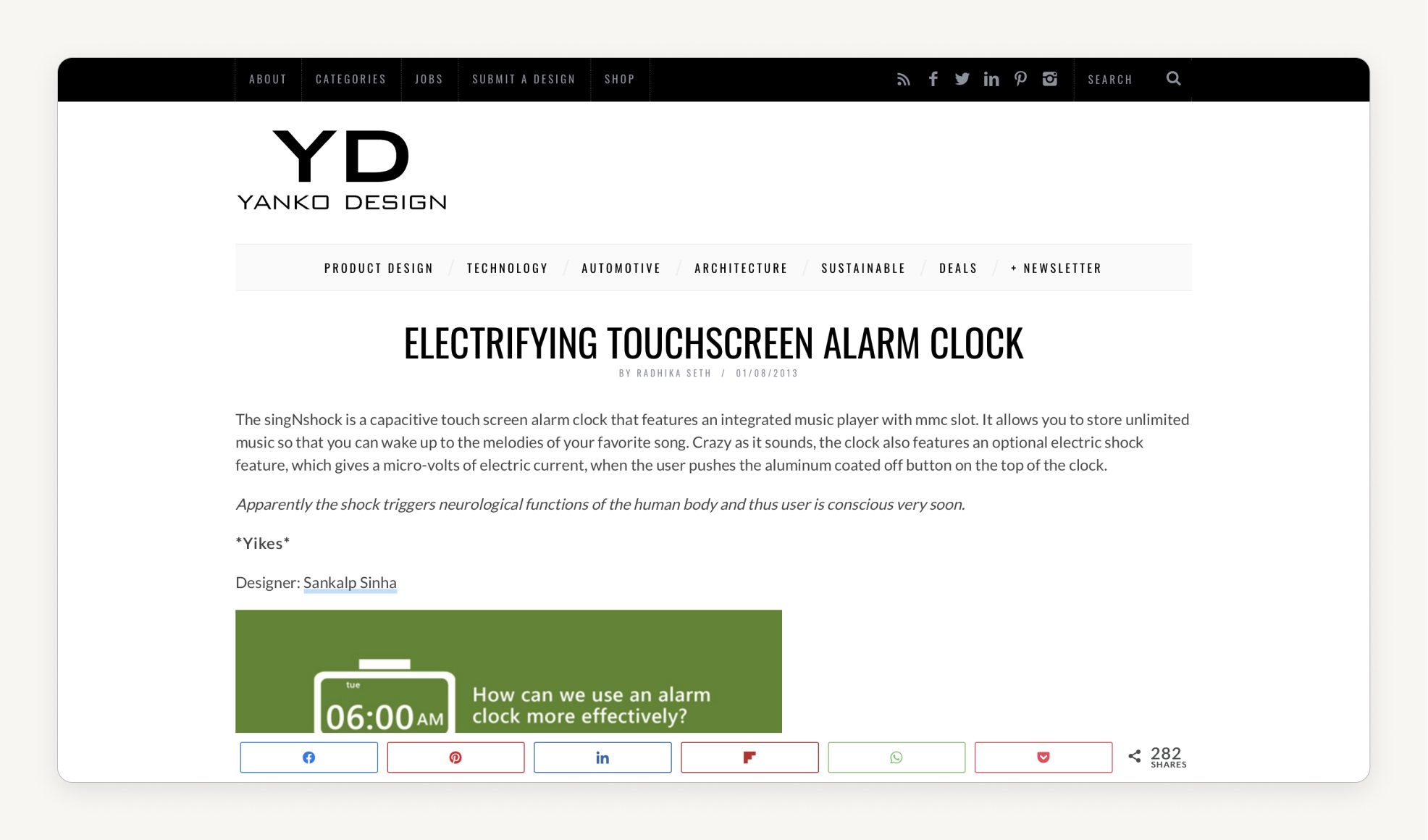
Enter Sankalp as a Product Designer:
Although short-lived, the fame from my conceptual designs gave me the motivation and confidence to chuck engineering altogether and build a career in design. I started doing some graphic design work in college. Then some freelancing where I designed logos for clients.
Career move #1
Some experience in graphic design in college attracted a job for me in a startup as a UI designer. It was a health-tech startup and I was responsible for designing a full-fledged app like Practo.com. I worked from my hostel room and met with founders over the weekend. I guess I can call it my first (unintentional) remote job :D
The startup paid well for an undergrad and I realized one thing: As much as I loved doing 3D concepts, the industrial design space wasn't as booming and flourishing as digital product design space in India. So I decided to focus on becoming a digital product designer and learn the trades of the craft going forward.
Career move #2
My stint with the health-tech startup was short-lived. But I took the learnings and joined an Ad-tech company (vdx.tv) as a UI designer. There, I learned a lot about how ads and ad products run the internet. But the work wasn't as fulfilling because the company was mostly a service company. And I liked designing and developing digital products vs. designing ads and ad-tech based tools for clients.
Career move #3
My desire to work for a product-focused company led me to join Wingify. I joined the design team for VWO.com, which is Wingify's flagship product and is one of the big players in A/B testing space till date. It was at Wingify where I started learning a lot about product management while also designing for the product.
While Wingify had a solid flagship product, they also wanted to experiment with new B2B and B2C ideas. This led the company to open a new office in a different city in India i.e. Pune. I liked the initiative and moved to Pune. This move gave me the opportunity to learn by designing, launching, and experimenting with ideas in very short span of time per product. I started becoming better at identifying product problems, talking to users, discussing/debating/and writing product stories with PMs, designing quick MVP solutions, and working with devs closely to ship and test ideas.
After spending about 2 years doing MVPs and 3 years in total at Wingify, I figured it was time for me to go back to designing for a stable product again. I could have gone back to working with VWO, but I wanted to move out and explore new opportunities.
Career move #4 (recent)
I started to interview with a lot of companies here in India and abroad. Working with Wingify Labs earlier, I had a new found love towards designing products from scratch and shaping the product but I also wanted to work on a single product vs. multiple ones for my next jump.
Most companies I interviewed in India, had established brands and defined products/pipeline, so I didn't see myself doing exciting "new" or "ground zero" work. Sure, new startups come up every day in India and I could have joined one of them back then, but they pay less and/or are less process oriented. I wanted to find the right balance for me.
It was then that I decided to put interviewing with Indian companies on hold and started interviewing with remote companies abroad. Another reason to look for a remote role was that I was a big fan of the book The 4 Hour-work Week and was always fascinated by the "nomad/remote" culture the book touched upon.
Luckily, with just interviewing a few remote companies, I found the perfect fit with SellerCrowd. The company had a SaaS tool which helped sellers in advertising industry find industry insights via a Q&A based feed (kind of like Quora).
The product was profitable but the code & design wasn't worked out to be scalable with new features + the vision of the company at the time of my interview. So they were looking for someone to come in and work out the product from scratch, which exactly I was looking for in my next role. On top of that, the company was already 5 years old, bootstrapped, and profitable. The economics of the company felt similar to Wingify, with the added bonus of an "all remote" position, so I jumped ship.
I had an amazing time at SellerCrowd where I helped the company redesign the product from scratch, setting up their design system, talking to users, writing product requirements in collaboration with PMs, ensuring pixel perfect implementation in collaboration with devs and QAs. The team was lean. People were friendly and very collaborative. We had multiple get together in various locations in Europe/Asia. We laughed at jokes and challenged each other at work. I loved my time there and feel grateful for the opportunity.
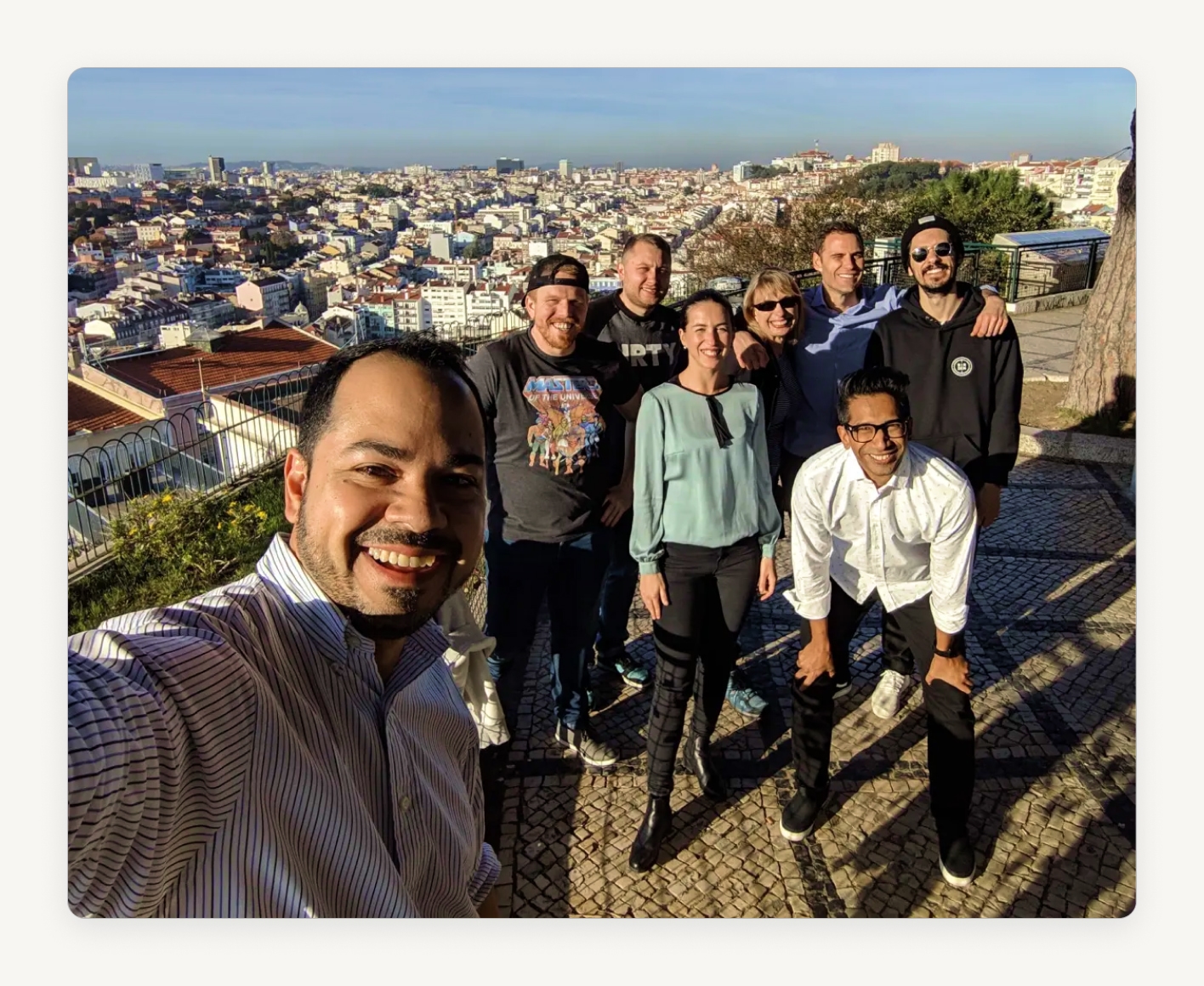
Meanwhile, apart from day job:
On work-life balance:
With all the fulfilling professional life changes, I always made sure to make work-life balance my top priority. I take immense pride to say that I've never worked on a weekend. I've never pulled an all-nighter to finish a deadline. Neither have asked a colleague or a junior of mine to do anything remotely similar.
In my 9+ years of working in the software industry, I've noticed that almost all deadlines are wrongly estimated, resulting in failure to launch, and then making it up by asking the team (or a few team members) to put in overtime. I am and will always be against work creeping into personal life. As they say "if you don't prioratize your life, someone else will".
All these years, with conscious effort, I've been successfully able to free up good # of hours during weekdays after work + all my weekends. I spend my free time playing football 2-3x per week, cycling sometimes, reading a book, watching youtube videos, watching movies, chatting with friends and family members, cleaning up my house, or working on side projects. More on the last two below.
On minimalism + keeping house in order:
Hygiene and cleanliness are at the core of everything I try to do. I do this with my physical and digital life. For example, my wardrobe is organised categorically in home vs. outside wear. My bookshelf is organised categorically in read vs. to-be read. The photos I take on phone, is organised categorically in folders by year.
Organizing stuff for me, feels like meditation. I enjoy doing it and the upside is that my physical & digital life is always in order. There's a famous quote that I love around this:
If you make your bed every morning you will have accomplished the first task of the day. It will give you a small sense of pride, and it will encourage you to do another task and another and another.And, if by chance you have a miserable day, you will come home to a bed that is made — that you made — and a made bed gives you encouragement that tomorrow will be better. ~Admiral William H. Mcraven
On side projects:
Your job teaches you many things but it still is restrictive in many ways. For example, when you work in a bigger company or with a team, you don't have all the creative control during execution. Many times for me, as a maker, I've felt that we could have worked on the landing page exploring a few other design directions. The code we pushed wasn't refactored well. The metrics we were tracking was loose and we could've tracked them better. The design system wasn't in place and building stuff faster was just going to add many different components, which would make refactoring them later harder. So on and so forth.
For creative control and to scratch my maker's itch, I have always been inclined towards creating new digital tools for as long as I have been a digital product designer. Here are a few that I made over the last decade:
-
MKA: In my last semester in college, I made a health app called MKA (short of Ma-ki-ankh. Translates to "eye of mother") with 2 of my dev friends. It was a windows app that notified you to drink water, do eye exercises, and to move around a bit after 30-45 mins of sitting with your computer. It crossed 10k downloads but we later shelved the product as we all went to figure out our "job situation" after college.
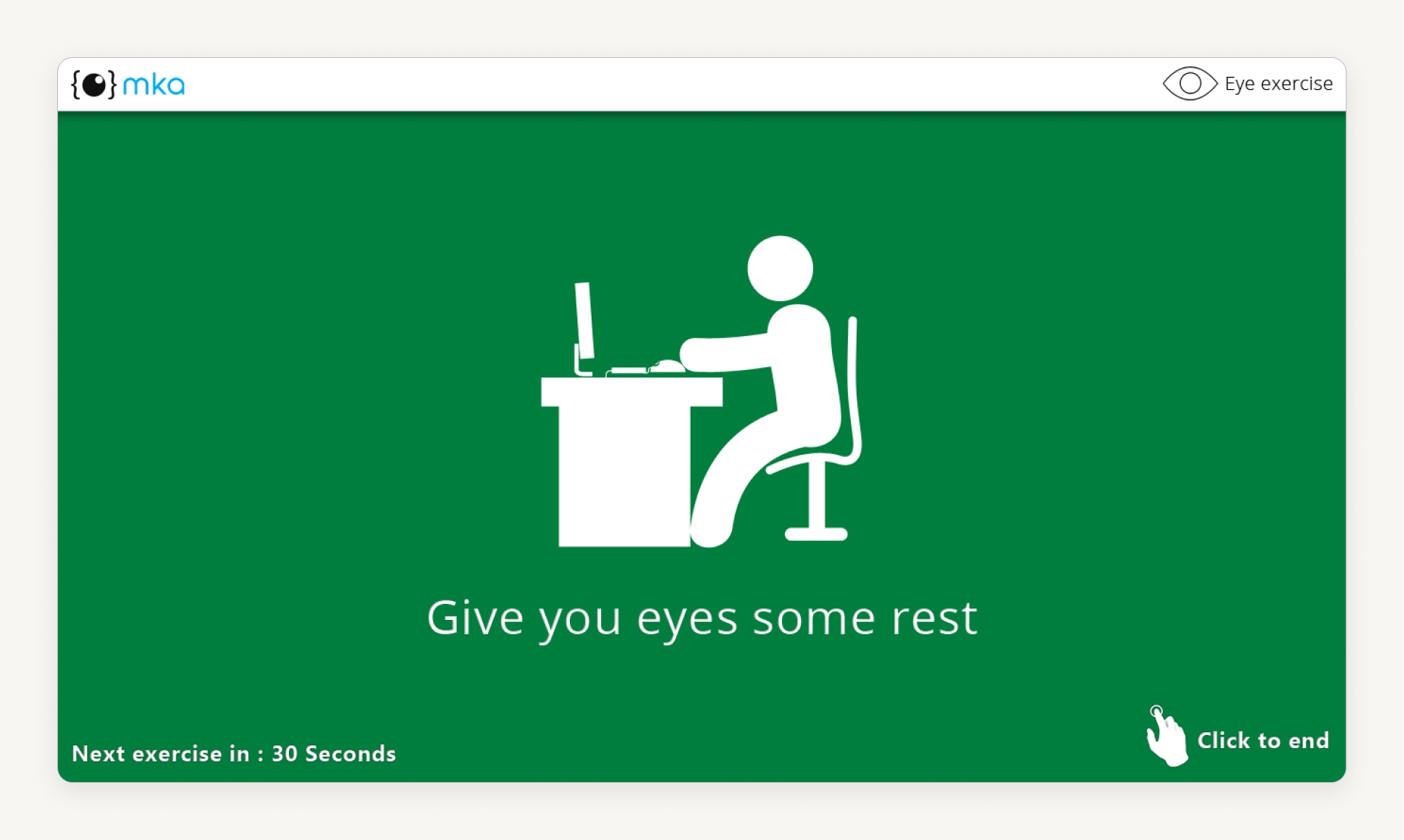
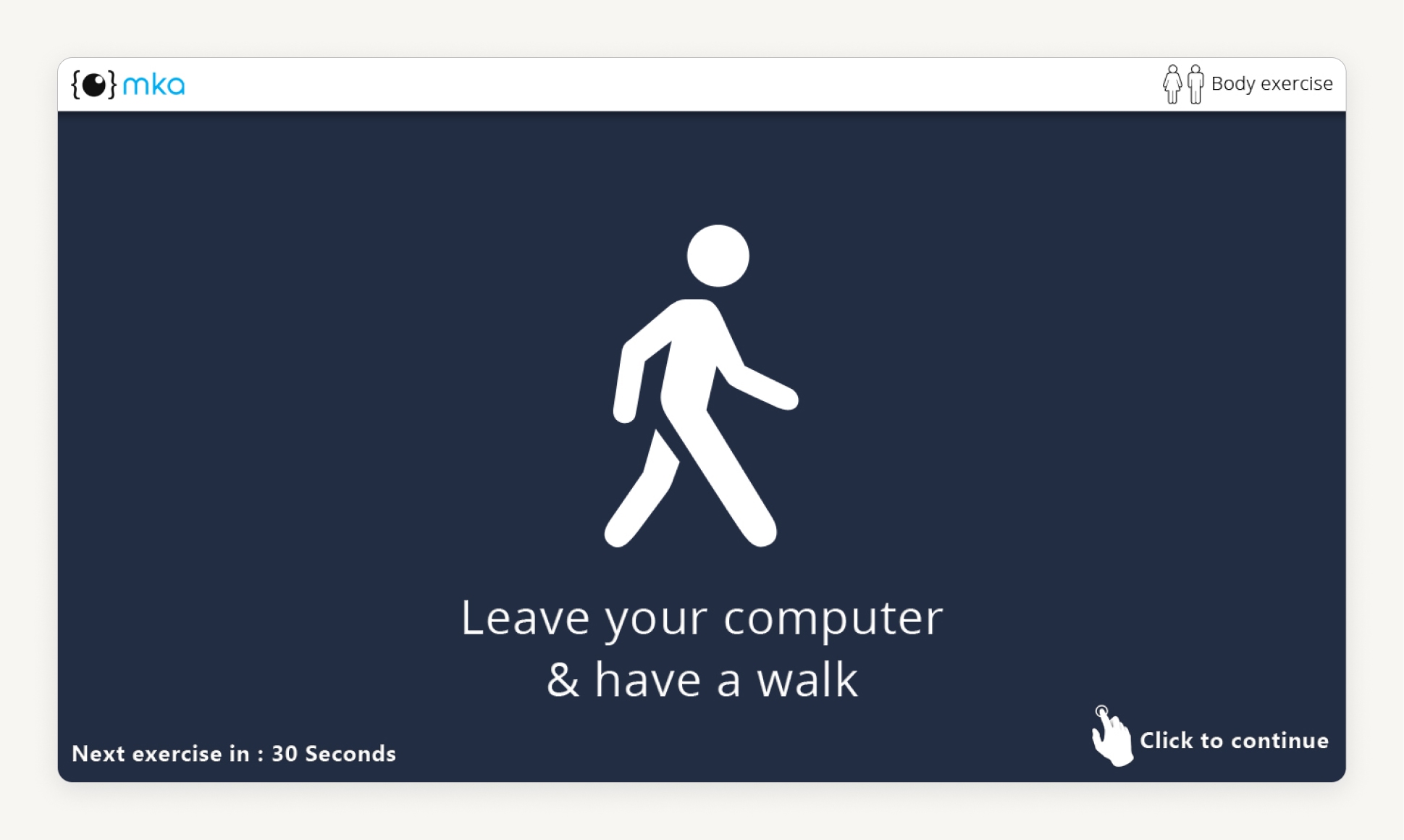
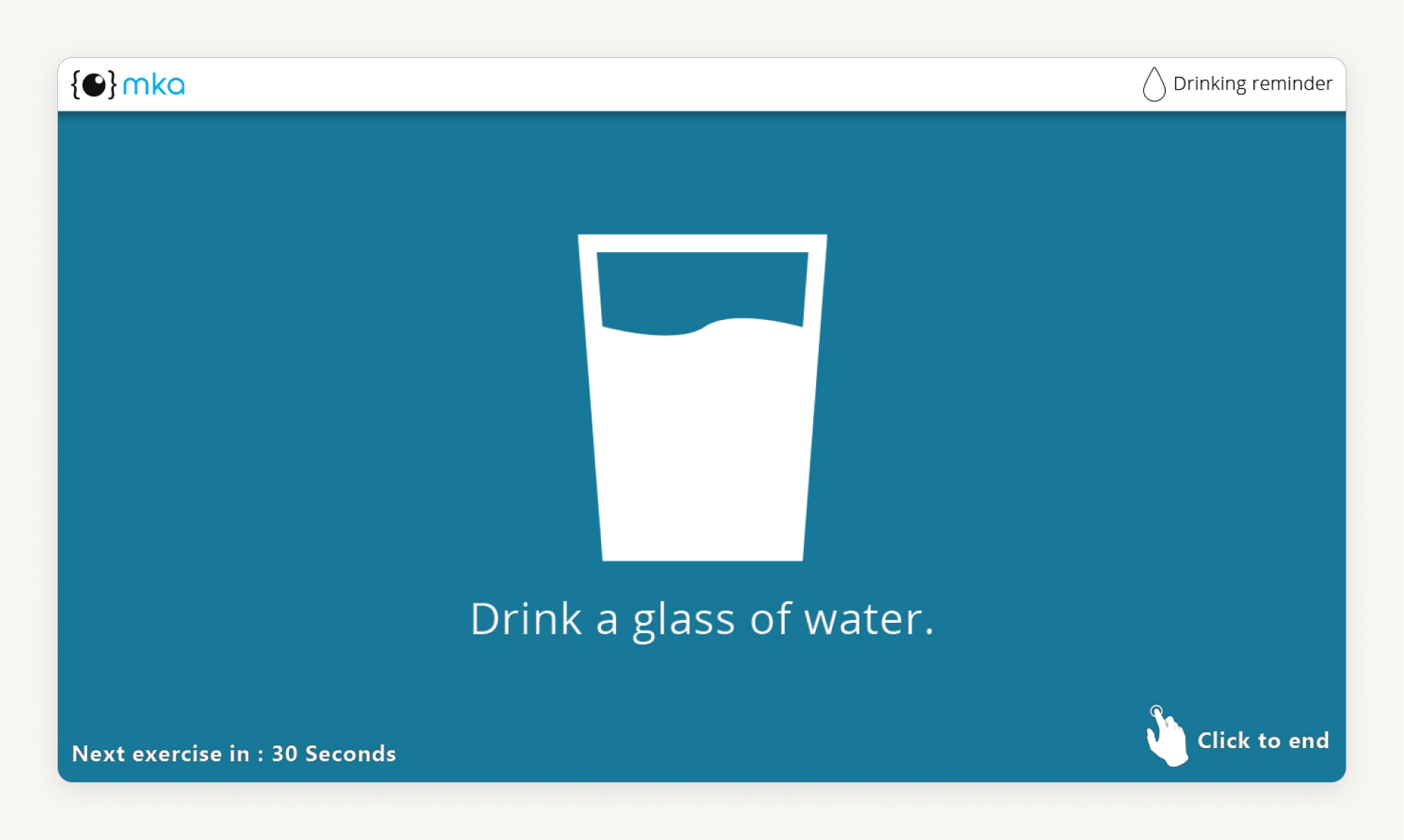
-
YessCSS: 2 years after graduating and in another get together with the same nerdy dev friends from college, we decided to make another web app called YessCSS to help devs create CSS components faster by giving them a visual tool. We never got around monetising or promoting this app but kept it alive. Visit yesscss.com.
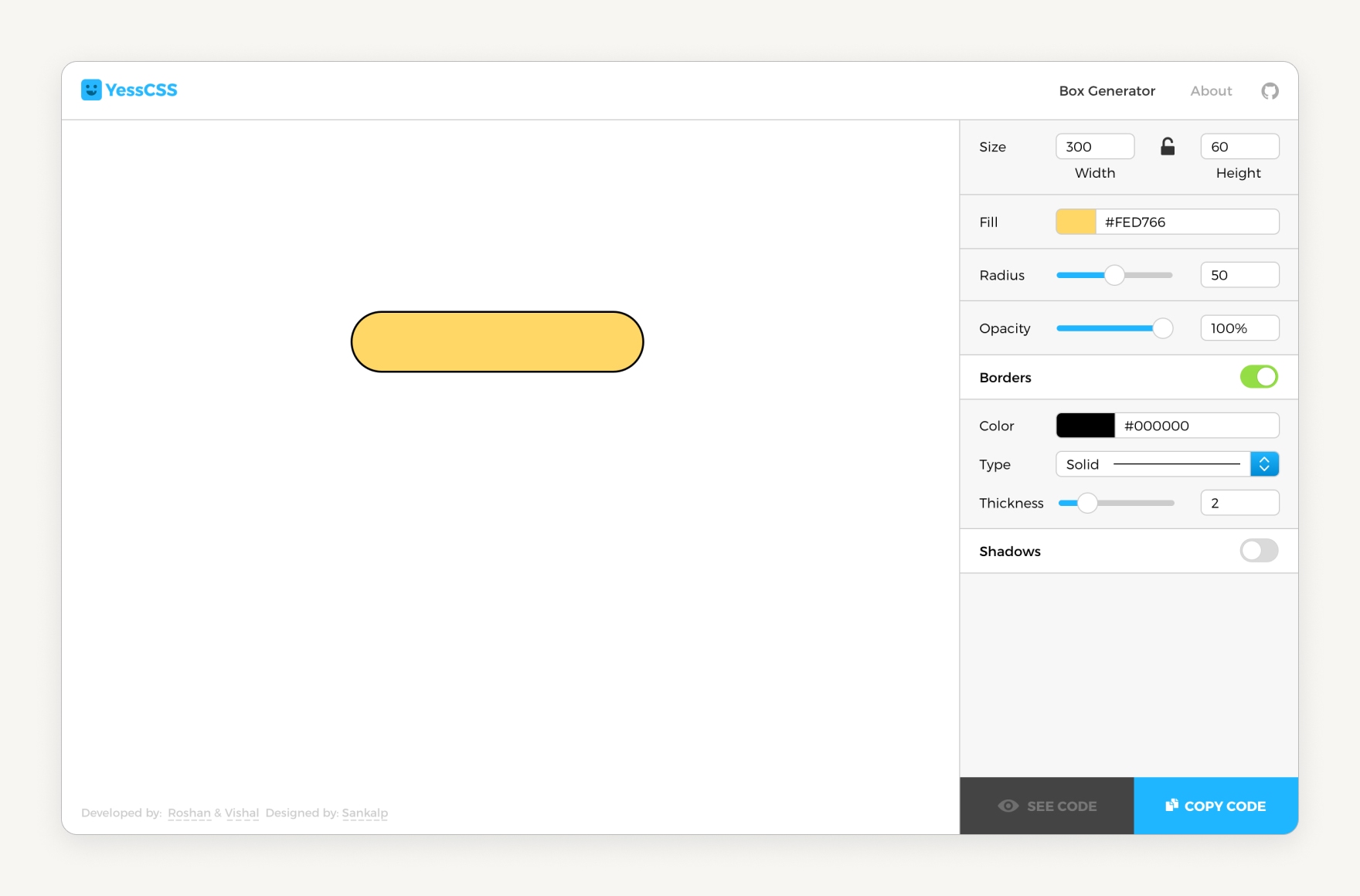
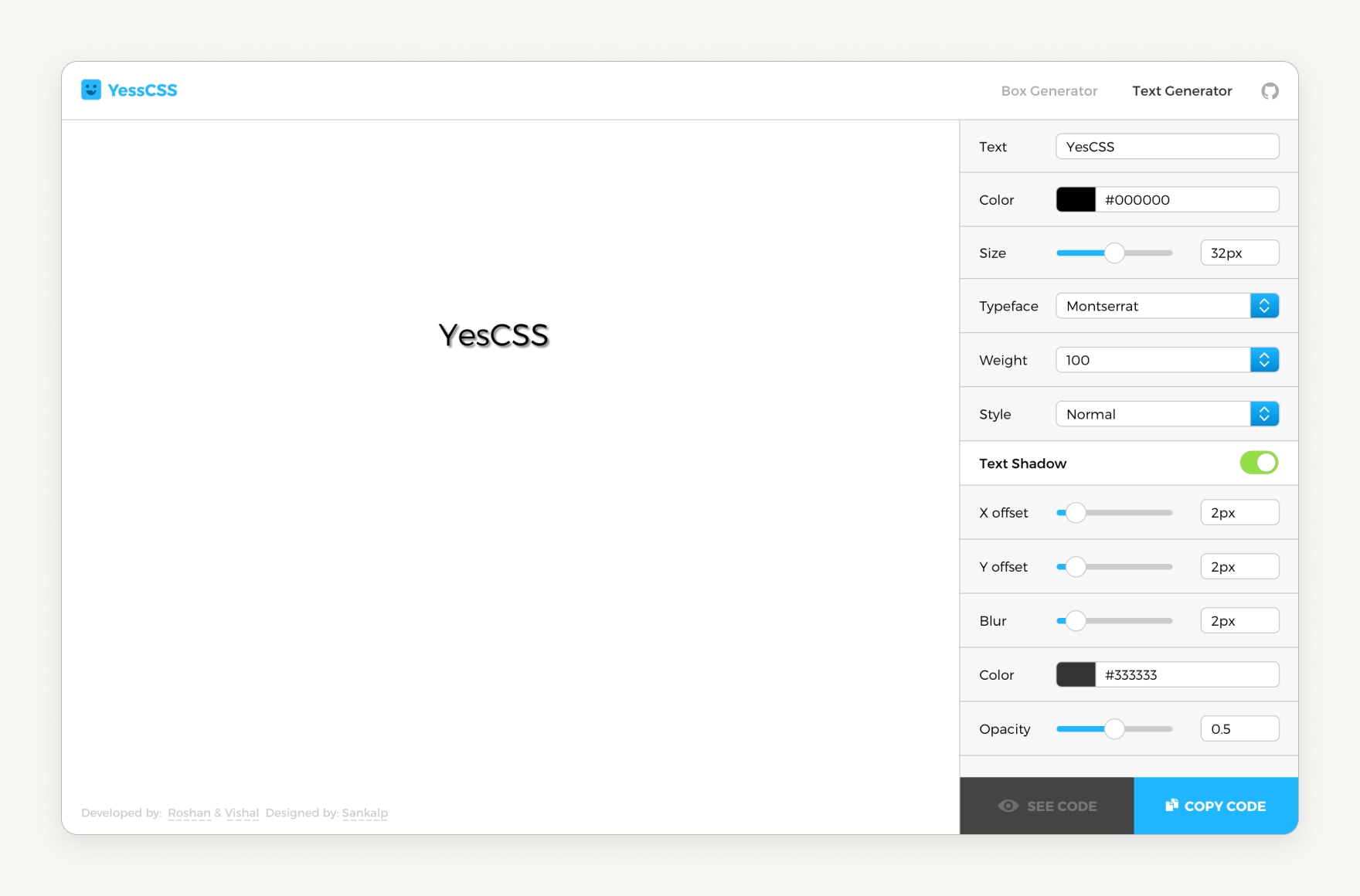
-
Rooster: This was a Chrome extension that I made with a co-worker friend of mine. He was already working on a Chrome extension that'd show you your browsing data in a new tab. I somehow always liked working on productivity tools and jumped to pair with him as a designer and co-maker. The extension did well on the Chrome web store and got about 2.5k+ downloads. We could have monetised it but then again, life happens :)
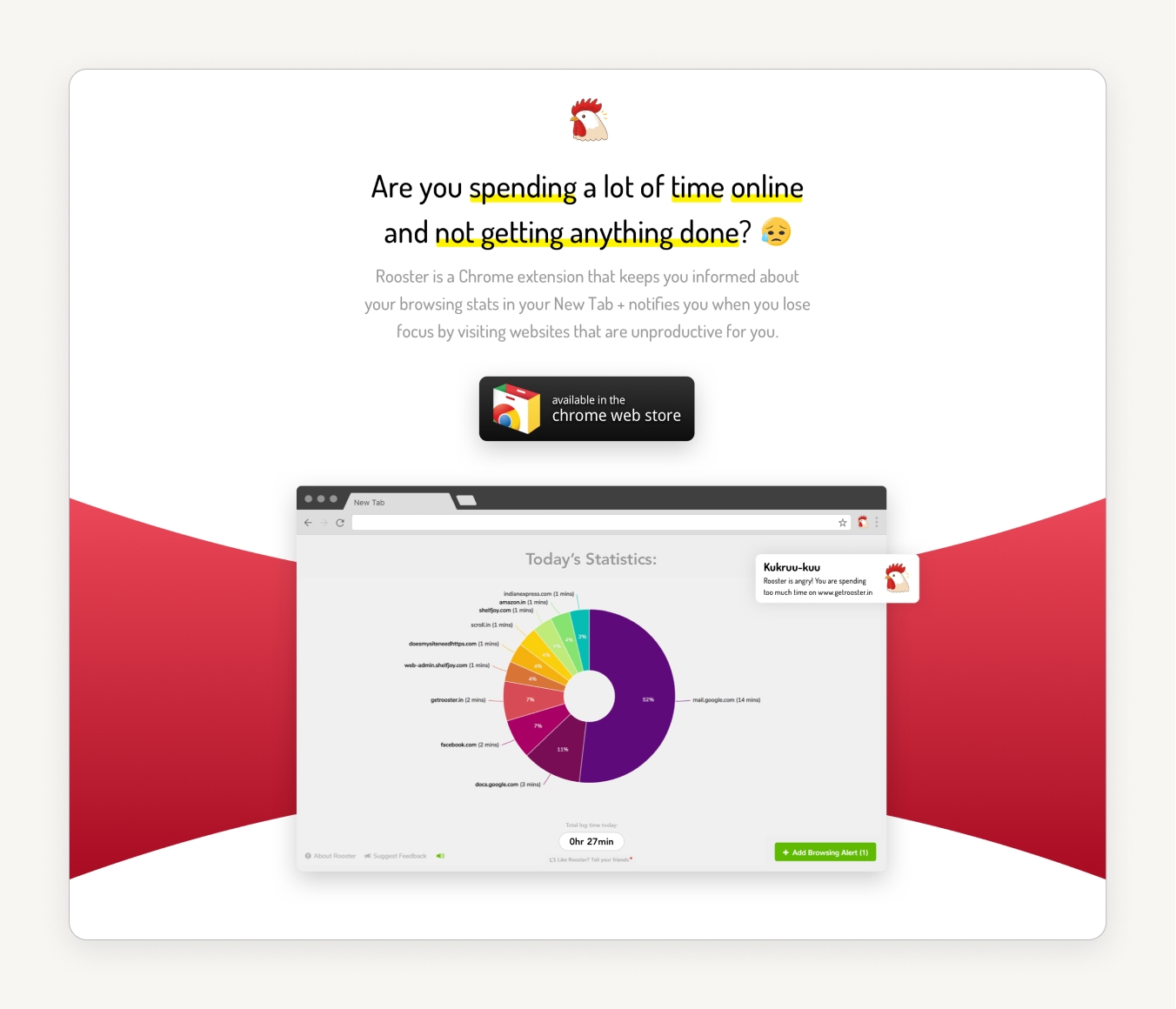
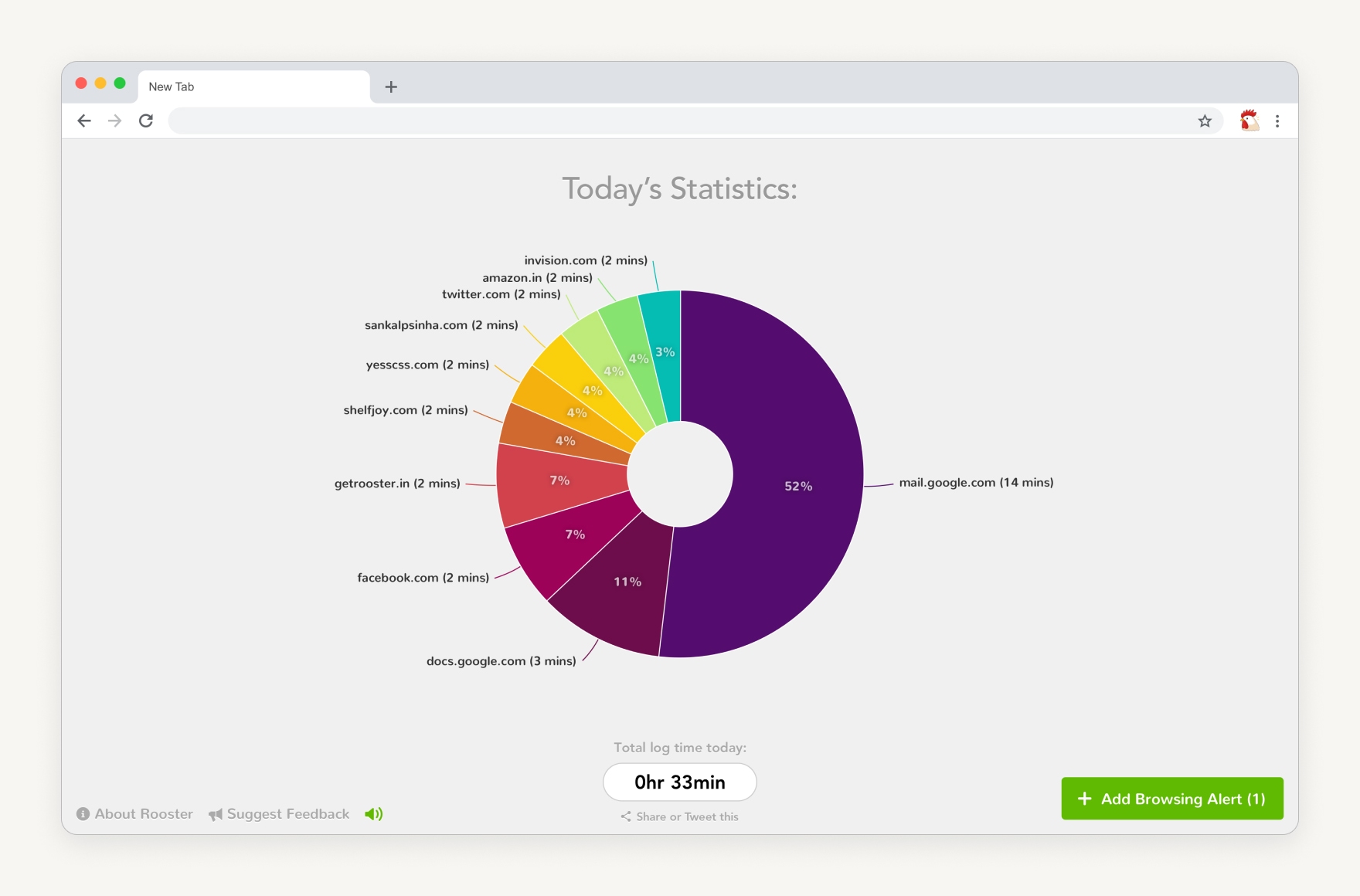
The change: Misery doesn't scale
I am not saying I am miserable :) In fact my life has been no less than comfortable, fun, and filled with luxuries of daily life. But working full-time has its ups and downs. We often forget to look at downs because monthly salaries are the biggest addiction.
The ups with a monthly salary are that you live a comfortable life filled with all the luxuries you might want. Want to buy the latest gadget, sure. 1-click away. Want to do a trip to Europe, sure. Want external daily help in cooking, cleaning your house, and doing dishes, 100% doable. Want to go out and have a nice fancy dinner every weekend, say no more. More importantly, working full-time for a company separates you from all the extra work of "figuring out business". You can just focus on one skill and just execute on it.
Why:
The downsides of working full-time are almost same, if not less. It's just that we ignore them and enjoy the ups of a monthly salary. Few downsides for me are:
- Less-to-no room to work on new projects. Yes, you can carve sometime from your weekdays and weekends to work on your project. You can also burn your midnight oil to do it. But it just takes longer and sometimes robs you from just simply enjoying life.
- Less time to rejuvenate as we're always on the "work machine". Sure, you can take 2 weeks off every few months but those gets eaten up very quickly to finish pending house chores or planning & executing a vacation.
- Less time to idle to let your mind wander and learn new things. I idle a lot. I think Idling i.e. doing nothing or not having any agenda for the day is great for my brain. It lets you wander off to new things. It brings back curiosity which leads to new & exciting opportunities - which you may never find if you're just working continuously.
- Little-to-no passive income. Building passive income takes time and effort. Most people I know on the internet who make serious regular passive income are the ones who've gone full-time working on their side projects. Yes, a few I know have made a few $$$ here and there but it's not recurring. Regular passive income requires work. Continuous work.
- Working constantly 40 hours/week. I've been working for almost a decade. That's a lot. If I continue this path, I'll probably work for 3-4 more decades before enjoying my retirement, or my real break from work. I don't like to wait that long.
Why now:
- Got my finances in place. The biggest reason that I feel confident that this is the best tiem that I should take a mini-sabbatical is because I got my financials right a few years back. I hired a financial planner who thought me how to manage my money and think in life goals vs. spending as I go about life. I've been saving for a runaway apart from other saving goals. I've a runway of a year which includes my daily bills, any small EMIs, and occasional travel plans.
- If not now then when? This is a question that I ask myself everytime I get excited about something but can't take the jump for x reason. We have been taught to keep working and retire after 60. These rules / principles were made in early decades when families were earning quite the bare minimum and living life month-to-month. Times have changed. The IT industry has opened a ton of opportunity for those who can learn new skills and master them. I feel fortunate to have found my way into digital product design which pays well and helped me earn quite decently and save for my life goals.
- Doing things that I like. Yes, I've maintained an ideal work-life balance. I get time to play sports, watch movies, meet friends & family, and many other non-work activities. In short, I'd say that I have lived quite a balanced life so far where I worked decent # of hours and reaped the benefits equally. But the question I am trying to answer here is: "can I deprioritize full-time roles every 10 years and prioritize other activities?". And I think I can. And I should.
So what's next?
- First and foremost, I've left my job in November this year to enjoy my sabbatical for a few months. I haven't decided how many months of sabbatical I'll be on. But it'll definitely won't be 2 months or 12 months. I think I'll just keep the range between 3-6 months.
- Building my personal/portfolio site in public. This is a long pending project of mine. The last I updated my website was 5 years back I think. I already started this year working on it but again, the progress has been real slow. I'll be dedicating some time towards designing and building the site faster for two reasons. One, I love working on my personal site. Second, when I go back to job hunting next year in 2022, the website will help me vs. sending pdf/Figma resume links.
- Working on a new saas tool. Getting back to scratching my maker's itch next year. I have a SaaS tool in mind that I'd like to bring to market and test whether I turn it profitable. Unlike old projects, my sole focus for this project from day 1 is to prioratize revenue for the product.
- Do some travelling with friends and family. Self explanatory I guess. As mentioned earlier, even though I'll be on sabbatical, I have been saving on life goal basis and one of those goals were "Travel funds".
- Read more books/articles. I bookmark a lot of interesting stuff I find on the internet to read later. The list has grown a lot, so I'll wrap a few of those.
- Write more, audit photos, other : As mentioned earlier, I love to organize my stuff, be it physical or digital. I haven't audited photos from last year and this year. Also, I've been writing less for my blog. So this will be another area of focus.
- Lastly, a lot of idling & thinking.
See you on the other side :)